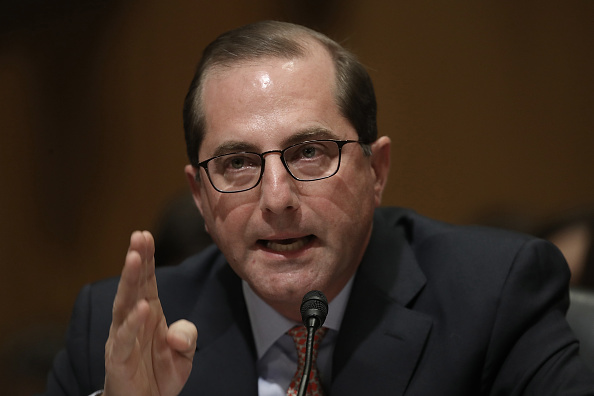
Health and Human Services Secretary Alex Azar
The Trump administration is looking to fulfill a pledge it made to crack down on rebates drugmakers offer to pharmacy benefit managers and payers that critics say have contributed to the growth in drug prices.
The Department of Health and Human Services proposed Thursday to exclude rebates that drugmakers offer to PBMs, Medicare Part D programs and Medicaid managed care organizations from safe-harbor protection under the Anti-Kickback Statute. The proposal will be published in the Federal Register on Wednesday and will include a 60-day stakeholder comment period.

NEMT Partner Guide: Why Payers and Providers Should Choose MediDrive’s TMS
Alan Murray on improving access for medical transportation.
Cracking down on kickbacks is part of the administration’s blueprint for lowering drug prices. The administration maintains that the current rebate system creates an incentive for increasing list prices. Experts have explained that PBMs are paid based on the spread between list prices and the prices they negotiate with manufacturers, but the secrecy that surrounds the rebates encourages drugmakers to keep raising the list prices. Others have expressed agreement, including the American Society of Clinical Oncology, which has stated that they are harmful to cancer patients in particular.
The proposal is aimed at reducing out-of-pocket drug costs, particularly for seniors who are Medicare Part D beneficiaries. In place of the existing rebate system, it would create a new safe harbor for discounts offered directly to patients and fixed-fee service arrangements between drugmakers and PBMs. HHS that this would allow rebates to be passed on directly to patients and reflected in what they pay out of pocket, as negotiated discounts would be reflected in cost-sharing methods such as co-insurance.
“Every day, Americans – particularly our seniors – pay more than they need for their prescription drugs because of a hidden system of kickbacks to middlemen,” HHS Secretary Alex Azar said in a statement, referring to PBMs. “President Trump is proposing to end this era of backdoor deals in the drug industry, bring real transparency to drug markets and deliver savings directly to patients when they walk into the pharmacy.”
However, there is also the possibility the proposed rule would have an unintended side effect of raising costs elsewhere. In a series of tweets Thursday responding to the proposal, Avalere Health Director Chris Sloan wrote that “banning rebates in Part D means seniors pay less at the pharmacy counter, but more in premiums.” Plans and PBMs, he explained, use some of the savings from rebates to charge lower premiums, though it also means patients pay more in cost-sharing at the pharmacy. Thus, a potential consequence of the proposed rule is that patients who use a lot of drugs would pay less, but everyone in Part D would pay higher premiums.

The Power of One: Redefining Healthcare with an AI-Driven Unified Platform
In a landscape where complexity has long been the norm, the power of one lies not just in unification, but in intelligence and automation.
Some experts have also expressed doubts about how much power the administration really has. While HHS has stated that it has the power to put an end to PBM rebates, some have said an act of Congress may be required.
Photo: Win McNamee, Getty Images






